Fourth Annual inSIG Boosts India’s Capacity to Shape the Internet’s Future

Earlier this month, the fourth India School on Internet Governance (inSIG2019) was held in Kolkata on 15-17 November, expanding its network of leaders and professionals active in shaping the Internet’s future.
With support from sponsors, 50 fellows from various academic, cultural, and regional backgrounds participated in inSIG2019. Through panel discussions, workshops, role plays, and group activities the three-day school covered a myriad of topics related to the Internet, boosting participants’ understanding of the complexity of Internet Governance and its importance in the future of the Internet.
The sessions covered fundamental topics like the history, principles, and status of the Internet. The hurdles around online safety, human rights, online radicalization, and cybersecurity were extensively examined and many perspectives were brought out which were thought-provoking and ingenious. Status and challenges of emerging technologies, content regulation, and the multilingual Internet were also discussed widely, and valuable feedback and inputs were provided by the participants.
The importance of the multistakeholder model of Internet Governance was stressed upon, and the Dutch approach to Internet Governance was presented in which Arnold van Rhijn spoke about how a collaborative consultation with multiple stakeholders reduces future friction in policymaking.
The event had global experts from Internet-related Continue reading
Member News: Internet Society Highlights from 2019
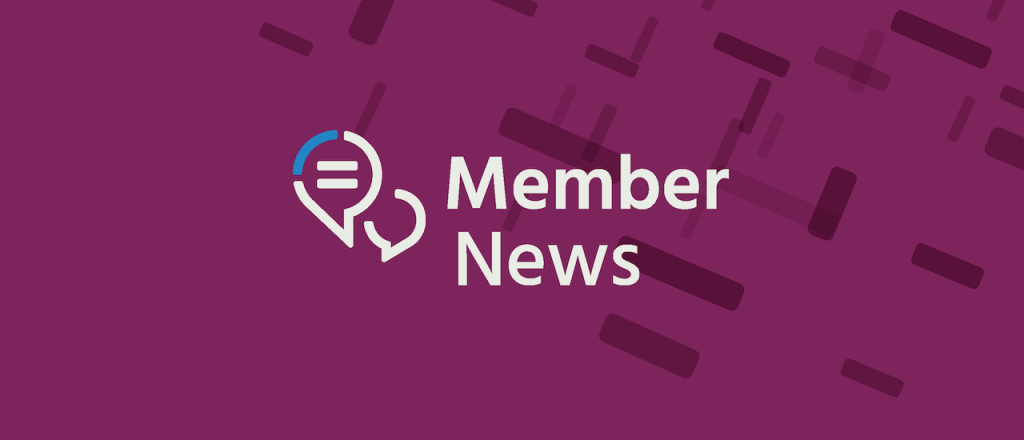
It’s been a busy year for Internet Society Chapters around the world, with members pushing to extend Internet connections to remote areas, involved in public policy, and focusing on cybersecurity. Here are some of the highlights in 2019:
Extending Internet connections
Community awareness: The Madagascar chapter provided awareness training on community-based broadband networks in the rural areas of Ambohimasina, Antambolo, and Morarano-Antongona during February and March. “Our main objective was to ensure that people using the Internet continue to be convinced of its usefulness,” the Chapter wrote. Another goal was for local leaders to have access to the Internet for the “purposes of innovation, creativity and economic opportunities for their municipality.”
Network planning: In Nigeria, the Internet Society Chapter began planning to set up a community network in Zaria, a city in the northern region of the country. The Internet Society provided startup funds of about 10 million naira, or “about the cost of a fairly used Toyota Corolla,” the Chapter noted. “By being very frugal and leveraging on existing infrastructure being contributed by community members, this will cover the cost of the initial wireless hardware required to connect at least 12 locations across Zaria.”
Connecting classrooms: Continue reading
The Week in Internet News: Worries of a Fragmenting Internet
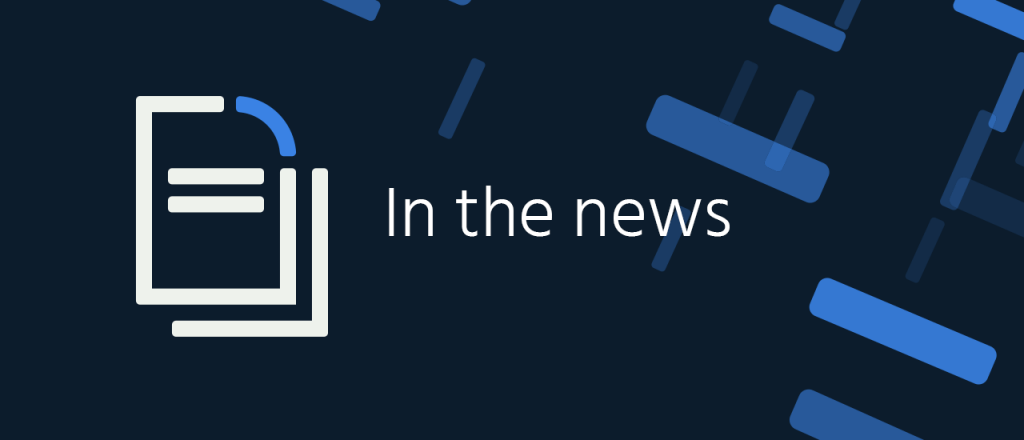
Fragments: Some activists are raising concerns about a fragmented Internet, with two University of Southampton professors writing about four competing versions of the Internet in Wired. The two professors wrote about the same issues for the World Economic Forum earlier this year. The vision of a coordinated, global network “might change in 2020 as Internet governance will be at the centre of a number of ongoing debates coming to the fore,” they wrote. “What values should the technology support? How should it deal with free speech and association? What about privacy?”
Squirrels on wheels: Mont Belvieu, a city near Houston, Texas, has built its own broadband network after struggling with slow speeds from existing providers, the Dallas Morning News reports. “I believe squirrels run on a wheel for my Internet,” one resident half-joked on a city survey. About half of the city’s households have signed up for the service, offering speeds of up to 1 gigabit per second for $75 a month, since it launched in mid-2018.
Encryption warnings: Chloe Squires, the U.K. Home Office’s head of national security, has weighed in on a U.S. Senate debate on encryption, saying Facebook will undermine her government’s fight against Continue reading
Lessons Learned from the Multistakeholder Process in the Philippines

In 2018, we began collaborating with the Philippines’ Department of Information and Communications Technology (DICT) to develop the country’s National ICT Ecosystem Framework (NICTEF), a successor to the Philippine Digital Strategy for 2011-2016.
The DICT, like all Philippine government agencies, is mandated by law to hold open consultations as a means of improving transparency and encouraging public involvement in the policymaking process. But it took this initiative further by ensuring that NICTEF is fully reflective of the needs and priorities of different sectors across the archipelago. For one year, the DICT led capacity building workshops, focus group discussions, writeshops, an online public survey, and regional consultations in each of the country’s major island groups, localizing the multistakeholder approach in the process to reach important and difficult decisions.
The NICTEF is now an authoritative guide on the Philippines’ digital ecosystem, and a roadmap to harmonize and coordinate the country’s ICT programs. The multistakeholder process adopted by NICTEF has been documented in a case study, offering other countries in the region a reference in developing public policies that are forward-thinking, inclusive, and suited to the needs of a steadily-interconnected world.
Below are some of our key takeaways from the process:
Develop Continue reading
The Week in Internet News: India Sets Record for Longest Internet Shutdown in a Democracy
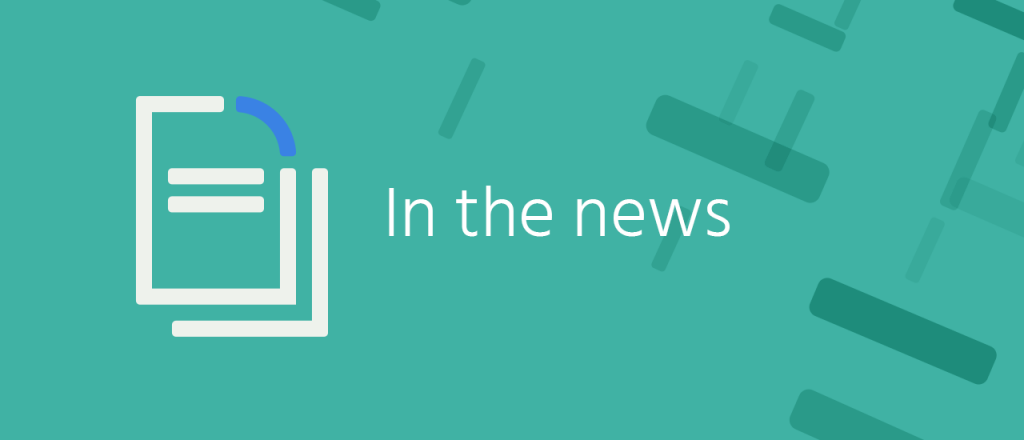
The longest ever: The 130-day-plus shutdown of the Internet in the Indian region of Kashmir is now the longest ever in a democracy, the Washington Post notes. The Kashmir Chamber of Commerce estimates $1.4 billion in losses due to the shutdown. Meanwhile, the Indian government is stepping up its shutdown efforts in response to protests across the country, TechCrunch reports. The protests are largely focused on a new citizenship law, which creates a path to citizenship for immigrants of all the major religions except Islam.
Another encryption fight: There’s a battle brewing over the encryption of Internet traffic being pushed by Google and Cloudflare, the ACLU says in a blog post. Some U.S. telecom carriers are calling on Congress to stop the encryption efforts. The blog post has a good explanation of the technical issues, while taking sides in the debate.
New standards for the IoT: Amazon, Apple, Google, and the Zigbee Alliance are working on a new open-source networking standard for home Internet of Things connected devices, ZDNet reports. The Connected Home over IP standard aims to make it easier for various IoT devices to communicate with each other.
Protesting social media bill: Thousands of people in Continue reading
Deutsche Welle Spotlights Tanzania’s Kondoa Community Network
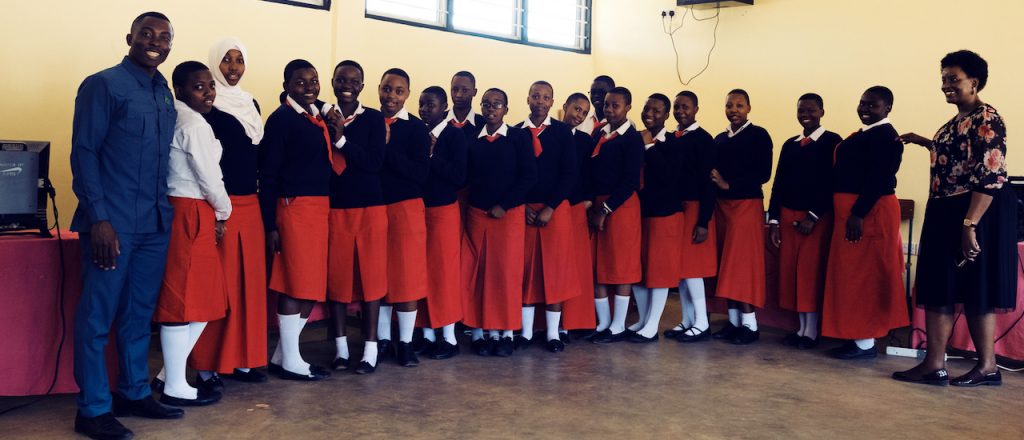
Nearly half of the world lacks Internet access. But in rural Africa, the number is much higher: 86% of people are unconnected, with fewer women having access than men.
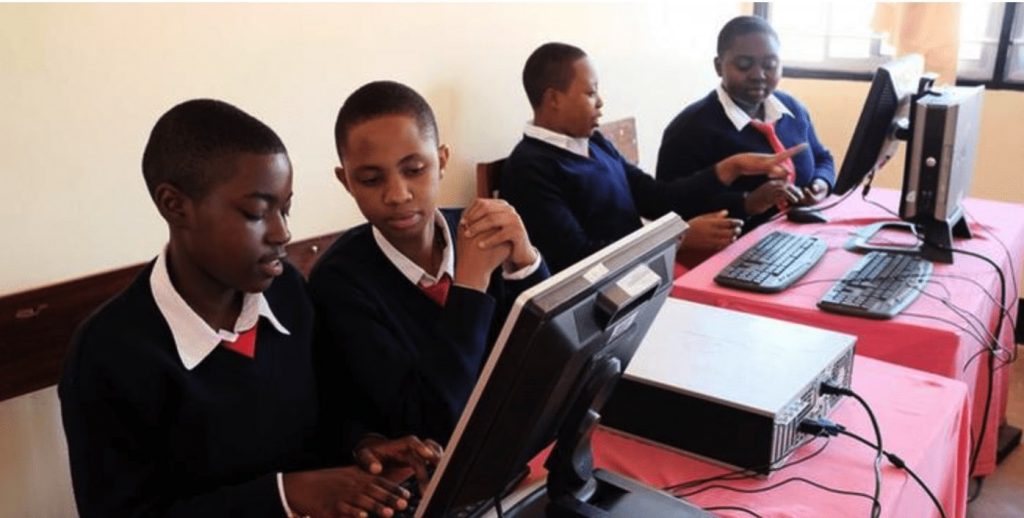
Deutsche Welle, Germany’s public broadcaster, shares the story of the Kondoa Community Network, a joint project of the Internet Society Tanzania Chapter and the University of Dodoma, that’s helping to close the digital divide. It’s connecting schools and community centers – and making a difference to young women.
Want to hear more?
Last year, Deutsche Welle profiled three additional community networks in Zimbabwe, the Republic of Georgia, and South Africa. Read about the community networks and listen to their stories!
The Internet is for everyone. Learn more about community networks and join the global movement to help close the digital divide!
Images ©Internet Society/Nyani Quarmyne/Panos Pictures
The post Deutsche Welle Spotlights Tanzania’s Kondoa Community Network appeared first on Internet Society.
Deep Dive: How the News and Media Sector Scores on Security and Privacy

In April 2019 the Internet Society’s Online Trust Alliance released its 10th annual Online Trust Audit & Honor Roll. The Audit looks at the security and privacy practices of over 1,000 of the top sites in various sectors. The news and and media sector, compromised of the top 100 news and media sites according to US traffic to their websites, improved its privacy practices in 2018. Like most sites, however, there is still room for improvement in privacy statements.
In 2017 less than half (48%) of news and media sites made the Honor Roll. In 2018 that number went up significantly to 78%, largely due to improvements in privacy statements. Privacy is scored in two ways in the Audit, we look at trackers on each site and we score the privacy statements across over 30 criteria.
One area where news sites did not improve was in the use of trackers on their site. Out of all the sectors news and media scored the lowest in trackers with a score of 39 (out of 45). Part of the reason for this is the news and media sector relies on advertising revenue, which often requires the use of trackers to serve ads.
From Content Blocking to National Shutdowns: Understanding Internet Disruptions

In March 2019, in a move described in one news report as a “government-imposed Internet shutdown,” the president of Sri Lanka temporarily blocked Facebook, WhatsApp, Instagram, Viber, and other services. In this case, limited access to a class of applications was inaccurately painted as a full-scale Internet shutdown. Unfortunately, this isn’t unusual. Media coverage and general discussion of Internet disruptions often misclassify what happened. The confusion is likely unintentional. Many journalists, as well as the general public, are not well-versed in the various ways Internet access and access to content can be disrupted.
When people can’t get to their favorite social media site, chat app, or video platform, there can be many causes. Maybe there’s a local Internet outage, or access to these sites has been blocked because of a government decree, or a nationwide Internet shutdown has been ordered by the government. Internet disruptions can take several forms, but end users experience the same problem across all of them – an inability to use the Internet to communicate and access content.
If, in the end, the end user experience is the same, why is it important to delineate between the various types of Internet disruptions? Proper delineation can help Continue reading
Working together to build a bigger, stronger Internet
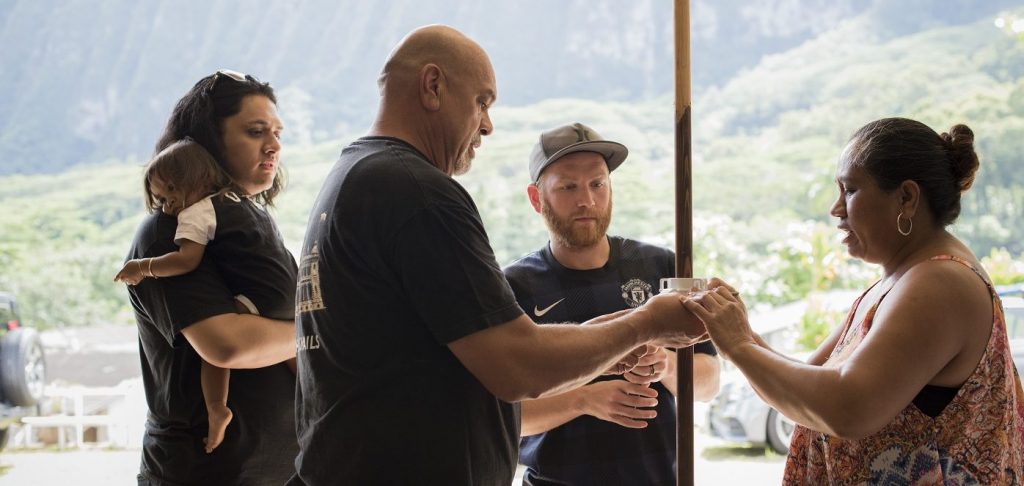
[Published on behalf of the Internet Society Board of Trustees.]
The Internet Society’s vision is that the Internet is for everyone. Earlier this month, we wrote about our efforts to ensure a stable and diverse funding model to support the work that takes us towards our vision. The role of the Board of Trustees is to provide, with support from the community, the strategic direction for that work. In this post, we discuss our recent and current strategic efforts, put them into context, and provide pointers with more information for our community to get involved in defining our wanted future.
Naturally, the starting point of our current strategy was to agree with the community on the overall direction. Therefore, two years ago, during 2017, the Board consulted with our community to revise our mission statement into what we have today. Many of you contributed to that 2017 effort, which resulted in the following three focus areas:
- Building and supporting the communities that make the Internet work;
- Advancing the development and application of Internet infrastructure, technologies, and open standards; and
- Advocating for policy that is consistent with our view of the Internet
Based on that community agreement on the development of this new mission, the Continue reading
The Week in Internet News: U.S. Lawmakers Threaten Anti-Encryption Regulations
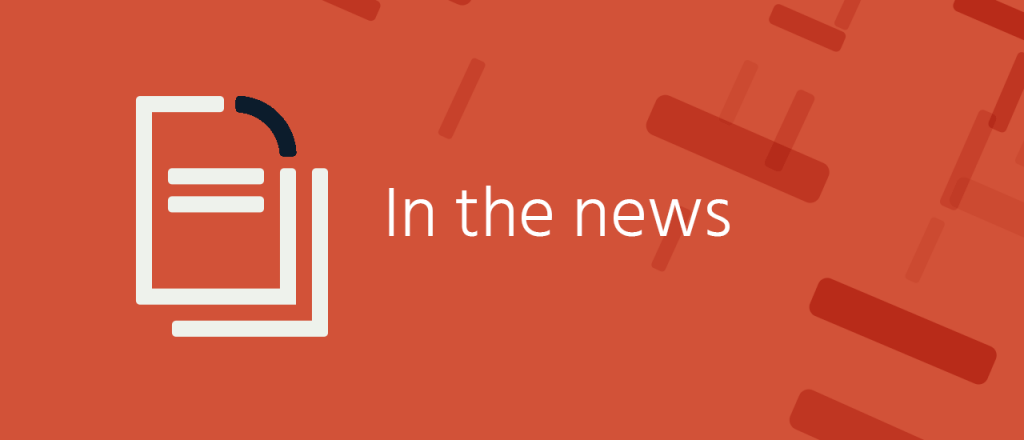
Don’t make us make you: Members of a U.S. Senate committee recently told representatives of Facebook and Apple that they need to give police access to customers’ encrypted communications, or they will be forced to by Congress, the Washington Post reports. The companies told lawmakers that backdoors in encryption would be exploited by cybercriminals.
Facebook declines: Meanwhile, Facebook has refused a request from U.S. Attorney General William Barr to build encryption backdoors into WhatsApp and Messenger, the New York Times reports.
Women want to be included: As Internet access is growing in the central African country of Chad, women are demanding to be in on the action, Reuters reports. Women across sub-Saharan Africa are currently 15 percent less likely to own a mobile phone than men are and 41 percent less likely to use the mobile Internet, the story says.
Gigabit tech boom: Gigabit-speed Internet service is turning some small U.S. cities into tech centers, bringing businesses and jobs to the areas, Inc. says. The story looks at businesses taking advantage of gigabit-speed networks in Chattanooga, Tennessee, Melbourne, Florida, and Sarasota, Florida.
Arrested for reporting: Thirty journalists are currently in prison worldwide on charges related to Continue reading
Celebrating a Successful Chapterthon 2019!
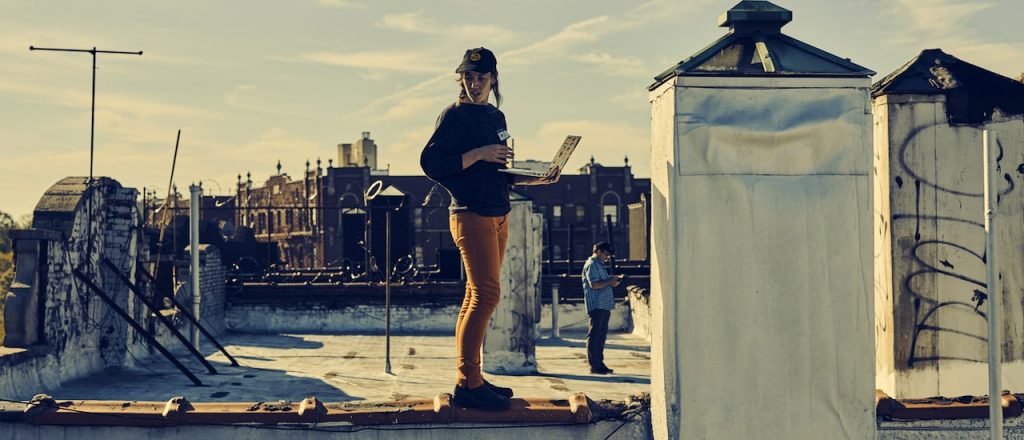
We are incredibly inspired by the collaborative projects brought to life by our Chapters for the 2019 Chapterthon, the global contest in which Internet Society Chapters develop a project within a set timeline and budget to achieve a common goal for the development of the Internet. This year’s theme was “Connecting the Unconnected” – because every last person on the planet is part of having an Internet for “everyone”, and we won’t rest until each person has the option of choosing to be connected.
Internet Society Chapters from all corners of the world developed innovative solutions that will continue to serve as inspiration for communities everywhere working to connect the unconnected. At the end of the contest, each project presented a three-minute video about the project specifics and its benefits to the community. Winning projects received a prize.
See how they addressed this global issue through local community initiatives!
Announcing the Winners!
1st Prize (USD 3000)
US New York Chapter
First Annual NYC Mesh Installathon: This project aims to mobilize a large team of volunteers on a single day to expand the NYC Mesh community network to at least six new locations, and connect underserved areas of New York City.
2nd Prize (USD 2000)
South Africa Chapter
Qokolweni Wi-fi Hotspots: This Continue reading
Claudio Jeker Honored by Internet Security Research Group with Radiant Award
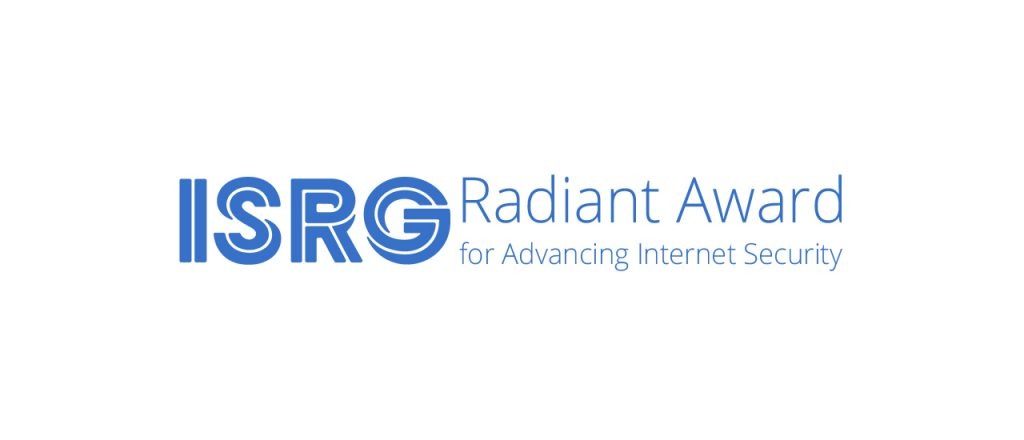
This week another Radiant Award has been awarded by the Internet Security Research Group, the folks behind Let’s Encrypt. The award puts the limelight on the heroes who make the Internet more secure and trustworthy each day.
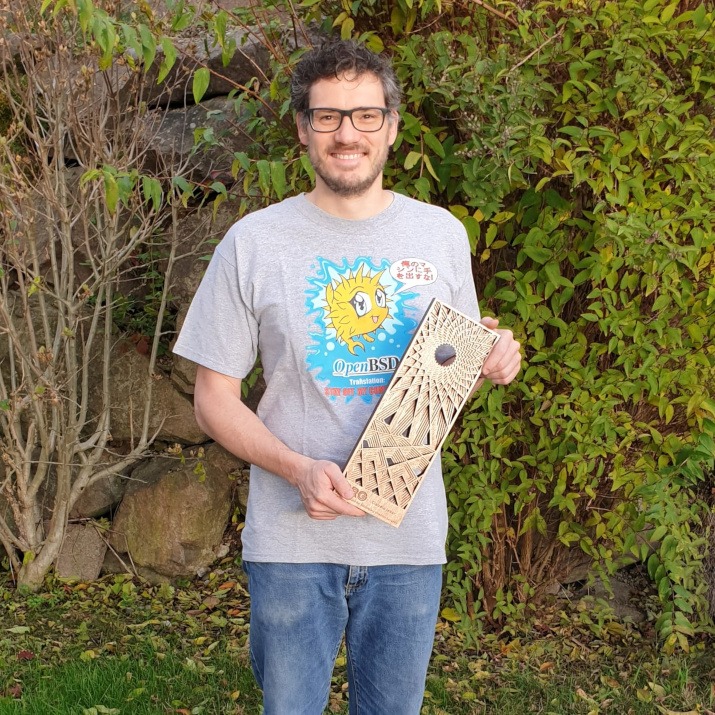
The newest Radiant Award winner is Claudio Jeker, who receives the prize for his work of a BGP4 implementation on OpenBSD. This makes me horrendously enthusiastic. Why?
OpenBSD is a open-software based operating system that is focused on being secure and feature complete. It comes with a set of tools that make it ideally suited to be deployed, for instance, as a secure route server in an Internet Exchange Point (IXP). A route server is a service that an IXP can host in order to make the participating network service providers lives a little easier. They do not have to get the routing information from each other, but can simply talk to this piece of centralized infrastructure. OpenBSD allows this type of infrastructure to be build from commodity components in a scalable and secure way.
With a route server in place, an IXP can take additional measures to secure the Internet, namely by taking the MANRS actions.
Ultimately this would not be Continue reading
The Week in Internet News: Australian Lawmakers Push for ‘Fix’ to Encryption Law
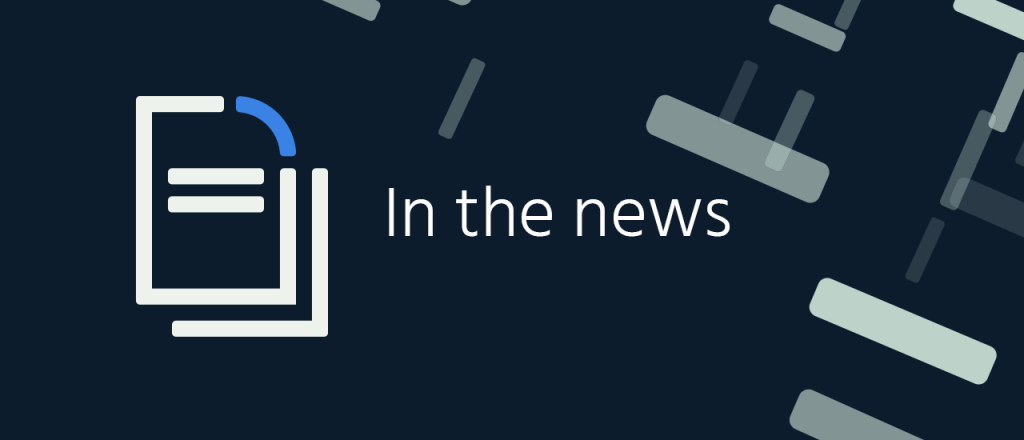
An encryption fix: The Australian Labor Party says it will push for changes to an encryption law, passed in late 2018, that requires tech comp anies to give law enforcement agencies access to encrypted communications, ZDNet reports. Labor Party lawmakers have raised concerns about the law’s effect on the country’s tech industry, but it appears they don’t have the votes to make changes.
Telemedicine needs access: The use of telemedicine is growing, but low speeds in rural Internet are delaying its benefits to parts of Indiana, according to a story from the Kokomo Tribune, posted at Govtech.com. Some Internet-based diagnosis services need interactive videoconferencing technology with fast broadband speeds that aren’t available in parts of the state.
The future of IoT security: IoT World Today has six predictions for Internet of Things security in 2020. Among them: Facilities managers will become more concerned about smart building security, with buildings becoming a new avenue of attack. The security of 5G networks will also become an issue with new attacks on the way.
Goodbye WhatsApp: WhatsApp has begun automatically removing Kashmiri residents from WhatsApp, due to a long-running Internet shutdown in the region controlled by India, The Verge reports. WhatsApp’s Continue reading
Rural Development Special Interest Group Organizes Internet Connectivity Tag 2019

In November, the Internet Society Rural Development Special Interest Group (RD SIG) organized an event called the Internet Connectivity Tag 2019 in Bangalore, India to deliberate on emerging technologies for the Internet of Things (IoT) and security, and what this means for rural development in India.
RD SIG invited a number of distinguished speakers to the event, many of whom are Chapter members. Adarsh B.U., for instance, is the president of RD SIG, a member of the Bangalore Chapter, and the program chair of the Hyderabad Chapter, which is currently being established. B.U. has been recognized as one of the top eight IoT thought leaders for his contribution towards the advancement of IoT in India. At the event, he organized an interactive, hands-on session with Contiki OS and Cooja Simulator.
Leading up to the event, RD SIG issued a call for fellowship applications from which over 300 expressions of interest were received. Out of the applicants, seven fellows from different parts of India were selected to participate in the event.
Highlights from the event included a presentation by Abhijan Bhattacharyya on IPv6 in the context of 5G for digital convergence. In his talk, he looked at the Continue reading
Online Trust Audit for 2020 Presidential Campaigns Update
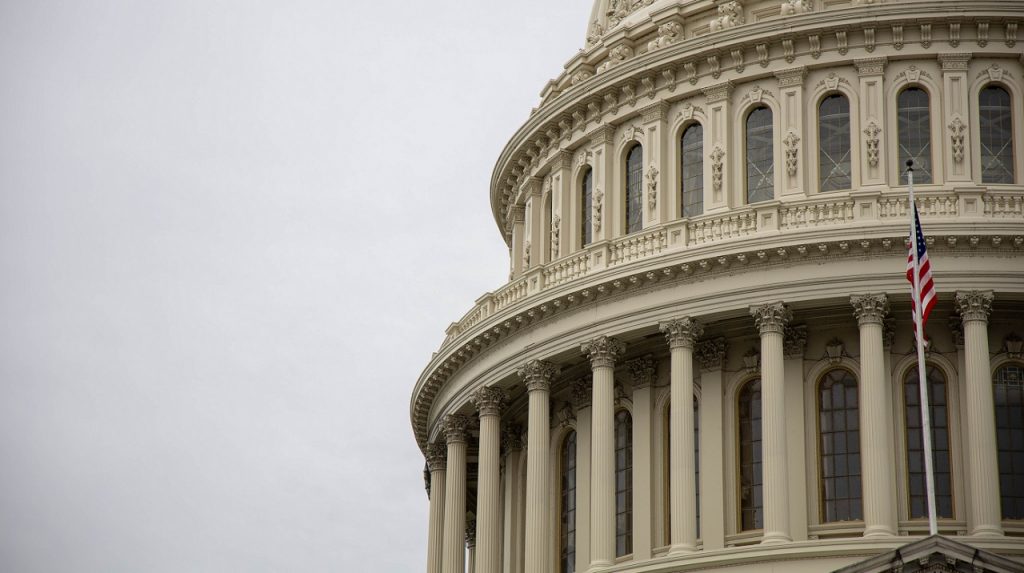
On 7 October 2019, the Internet Society’s Online Trust Alliance (OTA) released the Online Trust Audit for 2020 U.S. Presidential Campaigns. Overall, 30% of the campaigns made the Honor Roll, and 70% had a failure, mainly related to scores for their privacy statements. As part of this process, OTA reached out to the campaigns, offering to explain their specific Audit scores and ways to improve them. The campaigns were also told that they would be rescored in mid-November and the updated results would be published in early December. As a result, several campaigns contacted us to understand the methodology and scoring, and several of them made improvements.
Rescoring of all elements of the Audit was completed on 25 November, and the table below shows the updated results since release of the original Audit. Several campaigns have been suspended since early October (Messam, O’Rourke, Ryan, and Sanford, as well as Bullock and Sestak in early December). Campaigns shown in bold in the Honor Roll column made enough improvements to earn passing scores for their privacy statements and thereby achieve Honor Roll status. Campaigns shown in italics at the bottom of the table are new entrants since the Audit was released. Continue reading
The sale of PIR: The Internet Society Board Perspective
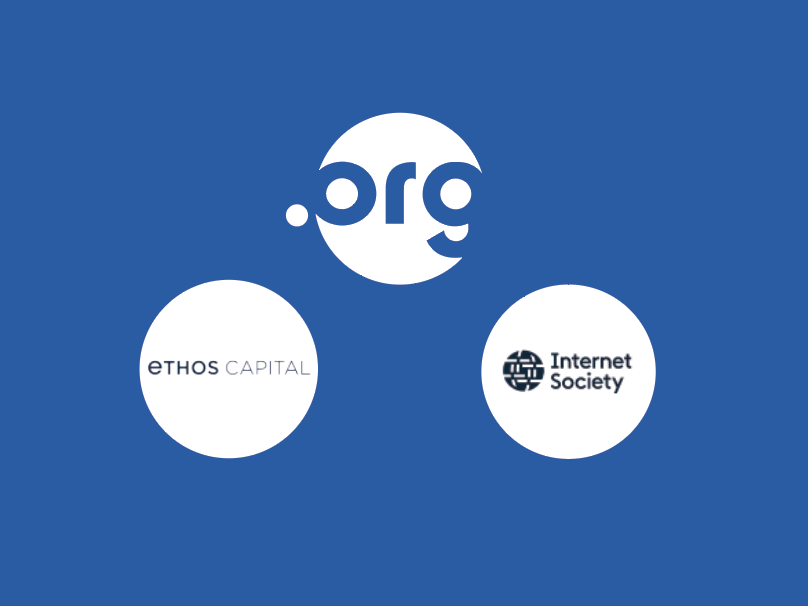
[Published on behalf of the Internet Society Board of Trustees.]
Last Friday we held a webinar with Internet Society members to answer questions about the sale of the Public Interest Registry (PIR). We were also able to unveil more details about the sale and its long-term contribution to the stability of the Internet Society (ISOC). On that call, we listened to our community members carefully. We heard the concerns regarding this decision from those who are worried about the future of the .ORG community, and who believe that we – as a non-profit and mission-driven organisation- are risking undermining our own legitimacy and responsibility to the public Internet.
First and foremost, we take the reaction from our community very seriously. Clearly, some members of the community believe that the decision to move forward with this transaction is harming our reputation. We fully understand the concerns expressed by our chapters and members, and we know that a lot of the criticism we have faced since announcing the transaction stems from the fact that we have not consulted openly, or been as clear as we should have been about what this sale would mean for both .ORG, and the Internet Society. It has always been the Board’s intention to be as open, transparent, and Continue reading
The Week in Internet News: $1,200 a Month for Internet Service?
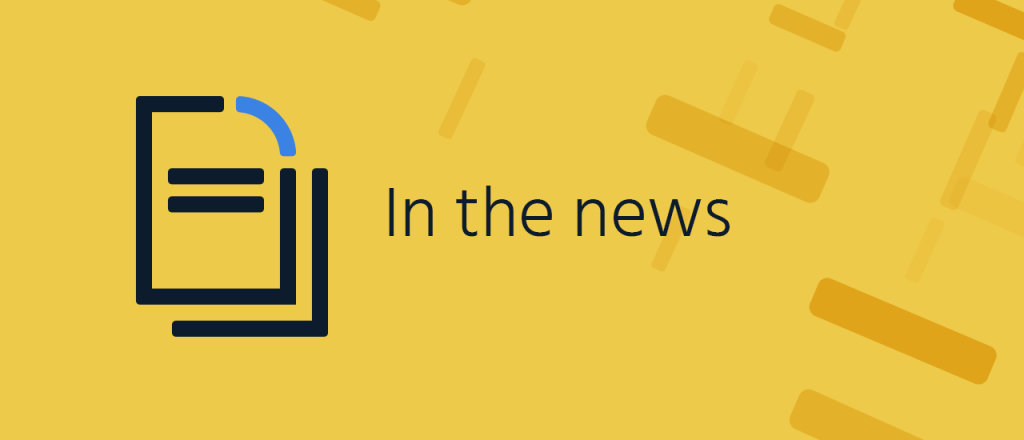
Gold-plated Internet access: Ulukhaktok, a small town in Canada’s Northwest Territories, is exploring ways to build its own broadband network after complaints of slow speeds and data caps, Vice.com reports. The price for exceeding the 10 GB data cap cost one resident $1,200 for the month. As part of the community-led effort, several residents have completed training on community networks with the Internet Society, which is supporting the project.
Editing ordered: Singapore’s government has ordered Facebook to “correct” a user’s post that contained accusations about the arrest of a supposed whistleblower and election rigging, in the first use of the country’s fake news law, Reuters says. The government called the allegations “false” and “scurrilous” and ordered blogger Alex Tan to issue a correction. But Tan does not live in Singapore and says he is an Australian citizen, and he refused to comply.
China joins in: Meanwhile, the Chinese government is targeting fake news and deep fake videos under new Internet content rules, Reuters reports. In addition, any use of AI or virtual reality needs to be clearly marked in a prominent manner in the government’s efforts against deep fakes. Failure to follow the rules could be considered a criminal Continue reading
Passion and Dedication at the 4th Summit on Community Networks in Africa
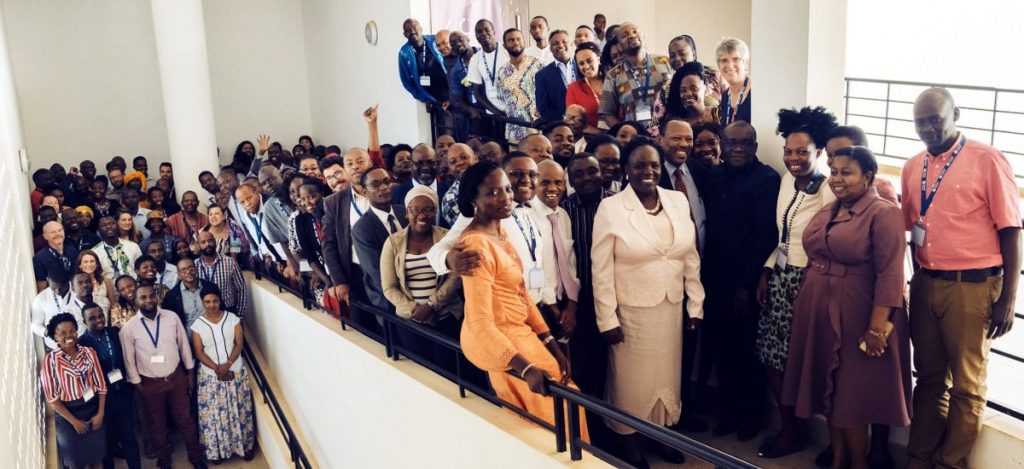
The 4th Summit on Community Networks in Africa took place in Dodoma, Tanzania from 28 October to 2 November 2019 in partnership with the Association for Progressive Communications (APC) and hosted by the University of Dodoma. The format consisted of two days of valuable training sessions on defining the community network (CN) movement in Africa, the importance of exclusivity and communications in building CNs, and strategies for sustainability cooperative models among others. The next two days were dedicated to plenary sessions, which focused on discussions to promote the creation and growth of community networks, increase collaboration between CN operators in the region, and improve their business skills. The Summit concluded with a two-day site visit to the Kondoa Community Network for more hands-on technical learning and sharing of best practices.
This year, the Summit received 134 participants from 18 countries globally: Argentina, Cameroon, Canada, Democratic Republic of the Congo, France, Germany, Ethiopia, Kenya, Liberia, Malawi, Namibia, Nigeria, South Africa, Spain, Tanzania, Uganda, the U.K., and the U.S. Of these 36 participants were women and 77 participants were from Tanzania. The participation of women was notable – and important in addressing gender gaps related to access in particular.
Community Networks provide Continue reading
Member News: Innovative Projects to Help Close the Digital Divide

Vote of Confidence: Voting is open for Chapterthon 2019, the global Internet Society Chapters marathon, where Chapters can develop projects within a timeline and budget to achieve a common goal for the development of the Internet. This year’s theme is Connecting the Unconnected. Twenty-eight Chapters – from Argentina to Zimbabwe – have submitted projects.
Keep the connections: The Venezuela Chapter is among several groups calling for large technology companies to maintain the availability of their services to Venezuelans. While an executive order from U.S. President Donald Trump seeks to block support for the government of Nicolás Maduro, the order does not ban the Internet and other technology services from serving the nation, the chapter notes. Access to the Internet and online services is “critical” because it brings access to independent news and allows citizens to express their opinions, the chapter said.
Trading chips: The Washington, D.C., Chapter recently hosted a conference on digital trade, including the impact of some nations’ policies that require data to be stored locally. “Data has become the most traded good and/or service across borders,” the Chapter said. “Meanwhile, many countries have adopted policies that inhibit digital trade, including requirements that Continue reading
Winners of the 2019 Chapterthon To Be Announced On 11 December – Voting Is Open Now!
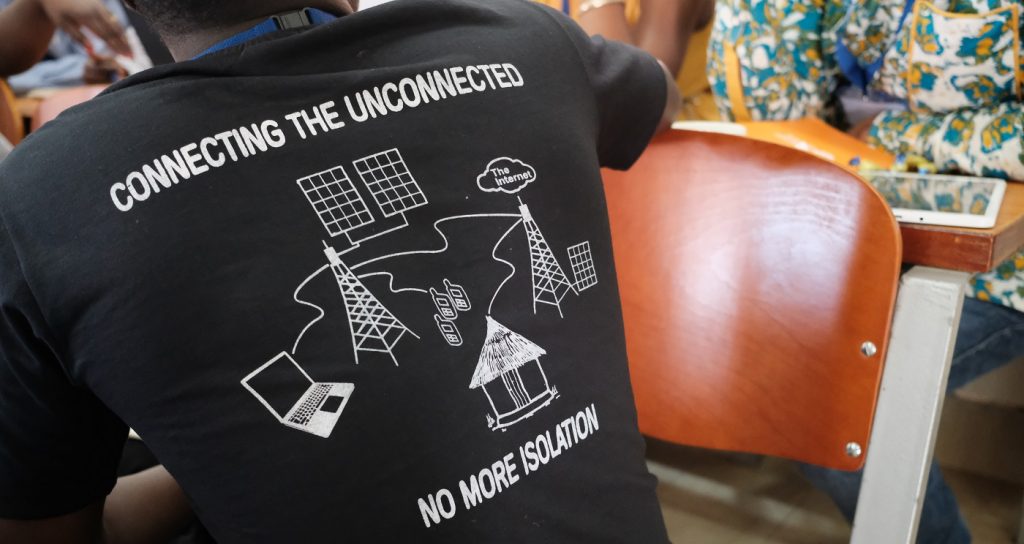
We’re thrilled to showcase this year’s creative, innovative and impactful projects aimed at ‘Connecting the Unconnected’. These short-term projects were run by twenty-eight of our Chapters that participated in the 2019 Chapterthon. We highly encourage you to take a few minutes to view the amazing work accomplished by your peers, and vote for your favorite project.
The winners of the 2019 Chapterthon will be announced during the upcoming Community Forum on 11 December, 13:00 UTC. Please join us in celebrating the amazing projects. The winning Chapters will be rewarded with a 1st prize of 3000 USD, 2nd prize of 2000 USD, and 3rd prize of 1000 USD.
Make your vote count before 6 December: vote now.
Find out who the winners are on 11 December: register here.
Image credit: © Internet Society / Nyani Quarmyne / Panos Pictures
The post Winners of the 2019 Chapterthon To Be Announced On 11 December – Voting Is Open Now! appeared first on Internet Society.